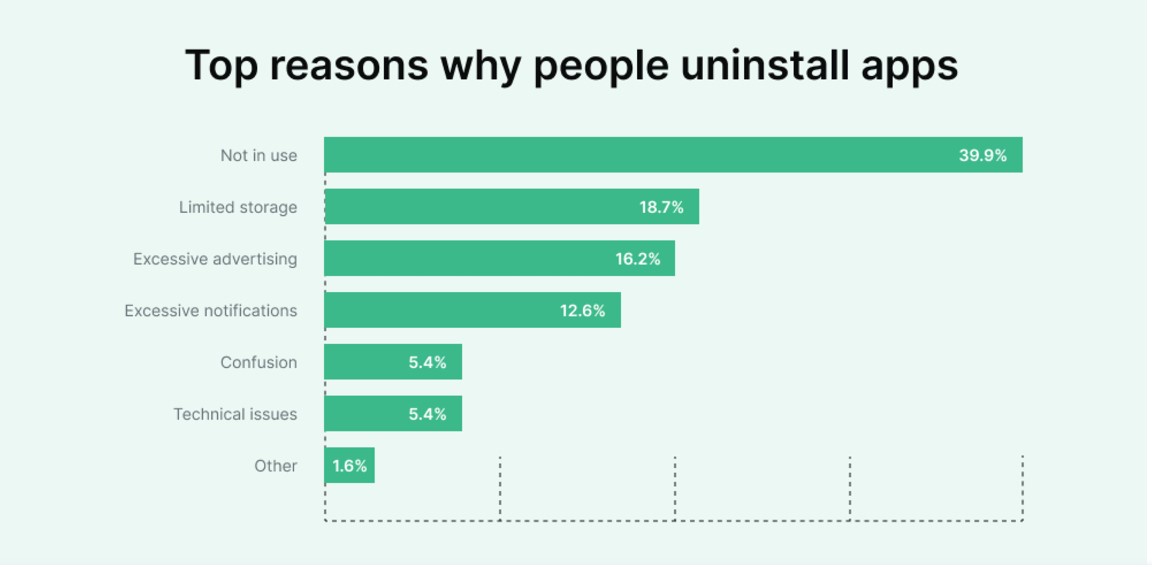Did you know that 9 out of 10 tech startups eventually fail?
According to UpsilonIT, a staggering 90% of tech startups fail in the long run.

There are a lot of reasons for this, but the lack of skilled talent and high costs are major contributors.
For many tech businesses, hiring software engineers, game developers, IT support specialists and app developers often feels like a losing battle.
High turnover, escalating salaries, and a global talent shortage hinder growth for tech businesses.
Outsourcing offers a smart and practical solution to these challenges, giving even small businesses a chance to compete.
This article breaks down how outsourcing can deliver the expertise, flexibility, and scalability needed to flourish in a highly volatile industry.
I. The Many Challenges of Tech

Rapid advancements in technology, combined with rising operational costs and an acute shortage of skilled talent, create a high-pressure environment.
Technology demands constant upskilling, as new tools and novel approaches move through the pipeline. As such, there is a global talent shortage for specialized fields such as AI, cybersecurity, and game development, where demand far outstrips local supply.
This is further complicated by the demanding challenges that is in the nature of working with technology and with cutting-edge field innovations.
Outsourcing has consistently demonstrated its value in addressing the toughest challenges facing the tech industry.
In the next sections, we will dive into these specific challenges through the lens of the different tech roles, and see how outsourcing has provided smart and practical solutions to thorny tech issues.
We’ll look at:
- Software Engineers & Developers
- Game Developers
- App Developers
- IT Support Specialists
A. Software Engineers & Developers
Software engineers and developers are the architects of innovation, driving the creation of tools and platforms that power businesses. However, ensuring the seamless execution of development projects often reveals significant hurdles:
Project Delays: Poorly managed timelines and scope creep frequently derail development schedules, leading to added costs.
Communication Barriers: Miscommunication between developers and stakeholders can cause misunderstandings about project goals.
Poor Code Quality: Subpar coding practices result in delays, expensive rework, and long-term maintenance issues that drain resources.
Talent Shortages: Specialists in emerging fields such as AI, blockchain, or cybersecurity are rare.
Frequent Requirement Changes: Constant shifts in project objectives disrupt workflows and stretch teams thin.
Security Vulnerabilities: Without secure coding practices, businesses risk exposing sensitive data to breaches and cyberattacks.
Software Development: From Problem—To Solution
Problem: A US-based SaaS startup was delayed in launching its flagship product. The team faced multiple challenges, including addressing unforeseen security vulnerabilities, difficulty meeting compliance standards, and overburdened in-house developers.
Solution: The company partnered with an outsourcing firm to onboard a team of specialized software engineers. These experts quickly got to work and identified and addressed security gaps. They also streamlined the codebase to enhance functionality and ensured compliance with industry standards.
As a result, the product launched within revised timelines met stringent compliance requirements and gained a competitive edge in the market. With external expertise handling critical issues, the internal team was able to focus on strategic planning and future product iterations.
B. Game Developers
Game development is a delicate art that merges technical expertise with creative storytelling. However, achieving the perfect balance often comes with significant obstacles:
Resource-Intensive Development: High costs and long development cycles strain budgets and timelines, making it difficult to sustain operations.
Intense Competition: A saturated market demands constant innovation to stand out among thousands of games released annually.
Deadline vs. Creativity: Creative visions are often compromised to meet deadlines and budgets, affecting the final product’s quality.
Bug Fixing and QA Bottlenecks: Identifying and resolving bugs late in development disrupts release schedules and increases costs.
Team Coordination: Miscommunication between developers, designers, and artists hampers collaboration, leading to inefficiencies.
Platform-Specific Optimization: Developing games for PC, console, and mobile platforms requires distinct expertise and testing, complicating workflows.
Game Development: From Problem—To Solution
Problem: A gaming company struggled to deliver a highly anticipated game. Internal teams faced challenges optimizing the game for different platforms, dealing with quality issues, and adhering to tight deadlines.
Solution: The company partnered with an offshore team specializing in cross-platform optimization and quality assurance. The external team streamlined the game’s performance for PC, console, and mobile platforms while the in-house team focused on fine-tuning gameplay and design.
As a result, the game was launched on time, free of major bugs, and compatible across platforms. It garnered positive reviews, significantly boosting the company’s market presence.
By tapping outsourced talent, the whole project only cost $350,000–way below the originally projected $600,000.
C. App Developers
App development is at the forefront of the tech industry. App developers often face a range of issues that hinder progress and compromise user experience:
Cross-Platform Compatibility: Ensuring apps run smoothly on multiple operating systems and devices requires extensive testing and expertise.
Performance Optimization: Catering to users with low-end devices while maintaining high-quality performance is a constant struggle.
UX/UI Design: Balancing user-friendliness with visually appealing aesthetics can lead to design bottlenecks.
Frequent Updates: Apps require continuous updates to accommodate OS changes, address bugs, and incorporate user feedback.
Budget Overruns: Initial cost estimates often fall short due to unforeseen complexities, leading to budget overruns.
Third-Party Dependency Risks: Relying on external libraries, APIs, or platforms can introduce vulnerabilities or compatibility issues.
Compliance with Privacy Regulations: Meeting stringent global data privacy standards like GDPR and CCPA is both time-consuming and resource-intensive.
These problems, in one form or another, cause people to uninstall apps.

App Development: From Problem—To Solution
Problem: A mid-sized app development company faced significant delays in launching its flagship app due to complex GDPR compliance requirements. The team struggled to implement privacy features while simultaneously managing other development tasks.
Solution: The company outsourced to a team of legal and technical experts specializing in data privacy. This team immediately conducted a compliance audit, integrated required features, and streamlined updates.
As a result, the app achieved full GDPR compliance before launch and had a smooth rollout. This solidified the company’s reputation and paved the way for international expansion.
D. IT Support Specialists
IT support specialists are the backbone of modern businesses, ensuring systems run smoothly and disruptions are resolved swiftly. However, maintaining effective IT support comes with its own set of challenges:
High Turnover Rates: The demanding nature of IT support, coupled with burnout and frequent interactions with challenging customers, leads to high attrition rates.
Inconsistent Quality: Insufficient training and unclear guidelines often result in varied service quality, frustrating customers and creating inefficiencies.
Scalability Issues: Many businesses struggle to scale their IT support during peak periods, such as product launches or seasonal demand, leaving users waiting for assistance.
Time Zone Misalignment: Without a global team, businesses in one time zone may face delays in resolving issues for clients in others, undermining user satisfaction.
Technical Skill Shortages: Advanced troubleshooting for complex systems requires specialized skills that are often hard to find locally.
IT Support: From Problem—To Solution
Problem: A small Australian business faced constant struggles with maintaining 24/7 IT support. Limited staff availability during non-business hours led to delayed responses, increasing customer dissatisfaction and complaints.
Solution: The company partnered with a business process outsourcing (BPO) firm to establish a global IT support team spanning multiple time zones. The BPO team handled routine queries, escalated critical issues efficiently, and implemented a centralized knowledge management system to ensure consistent quality.
By tapping the services of a BPO, Operational efficiency increased. The business achieved round-the-clock IT support, reduced average response times, and significantly improved customer satisfaction
E. Tech Teams: Common Hurdles
Tech teams, comprising of different roles, face several overarching challenges. These issues are particularly pronounced in a global and increasingly remote work environment:
Cost Management: Striking a balance between affordability and high-quality skills often forces companies to make difficult trade-offs.
Retention Issues: Retaining talented professionals in a competitive job market requires strong engagement strategies and opportunities for career growth.
Technology Gaps: Keeping pace with rapidly evolving tools, frameworks, and best practices is a continuous challenge for tech teams aiming to stay competitive.
Cultural and Language Differences: Collaborating effectively in diverse, global teams can lead to misunderstandings or inefficiencies without strong cross-cultural communication practices.
II. How Outsourcing Is The Lifeline For Tech

Outsourcing has become the go-to solution for businesses looking to overcome persistent challenges and stay competitive in a fast-moving industry.
Here’s more on how it has directly addressed tech’s pain points:
-
Access to Global, Specialized Talent
Outsourcing provides businesses with access to a worldwide talent pool, enabling them to find professionals skilled in niche areas like AI, cybersecurity, game optimization, and cross-platform app development. This global reach ensures that businesses can match specific needs with the right expertise.
-
Scalability and Flexibility
With outsourcing, tech companies can scale teams up or down based on project demands. Whether it’s managing peak periods, urgent deadlines, or short-term initiatives, outsourcing partners offer the flexibility to adapt resources quickly.
-
Cost Savings
Hiring skilled professionals offshore often costs significantly less than hiring locally, without compromising on quality. Outsourcing enables companies to stretch their budgets while maintaining high standards, which is especially crucial for startups and mid-sized businesses.
-
Overcoming Time Zone Issues
By building globally distributed teams, businesses can achieve round-the-clock productivity. For instance, IT support can operate 24/7, and developers in different time zones can push projects forward while others rest.
-
Adapting to Changing Requirements
Outsourced teams bring a fresh, external viewpoint to projects. They are not entrenched in an organization’s existing processes or biases, enabling them to propose innovative solutions and adopt new directions with minimal resistance.
Outsourced teams frequently consist of professionals with diverse skill sets, honed from working with multiple clients across industries. This breadth of experience allows them to quickly pivot and adapt to evolving project requirements, applying strategies that have proven effective in other situations.
-
Real-World Impact
With these benefits taken together, tech businesses have leveraged outsourcing to transform their operations. For example, a US-based SaaS provider struggling with project delays turned to an offshore team to handle specialized software development tasks. The result? Accelerated timelines, reduced costs, and a product that met industry standards.
Outsourcing is proving to be more than just a cost-cutting measure. It’s a potent and strategic tool to overcome challenges, drive innovation, and future-proof tech businesses from the exigencies of their industry.
III. Case Studies
Here are three more real-world examples of how outsourcing has helped companies streamline operations, reduce costs, and accelerate success:
Case Study 1: IT Support Scalability for an Australian Company
Challenge: An Australian small business was struggling to provide 24/7 IT support. With a limited in-house team and growing customer demands, they faced extended response times and customer dissatisfaction, especially during off-hours.
Solution: The business partnered with an offshore outsourcing firm to establish a global IT support team. The team operated across multiple time zones, ensuring 24/7 coverage and faster response times.
Outcome: The company successfully reduced downtime and improved customer satisfaction. By having dedicated support available at all hours, they gained a reputation for reliable service, and their customer base expanded.
Case Study 2: Game Development Optimization for a New Zealand Studio
Challenge: A New Zealand-based game development studio was facing difficulty launching a multi-platform game. Issues such as cross-platform optimization, bug fixing, and quality assurance delayed the product’s release, while the competitive gaming industry demanded faster delivery.
Solution: The studio outsourced a team of specialized developers skilled in cross-platform optimization. The outsourced team worked closely with the in-house team to ensure the game met quality standards across all platforms, including PC, console, and mobile.
Outcome: The game was launched successfully, bug-free, and optimized for multiple platforms, meeting deadlines and industry standards. The studio gained positive reviews for its smooth, cross-platform gameplay and earned a strong foothold in a highly competitive market.
Case Study 3: SaaS Product Launch Acceleration for a US-Based Startup
Challenge: A US-based SaaS startup was struggling with delays in the development of a critical product. The main issues were security vulnerabilities, misaligned timelines, and a shortage of specialized software engineers to address complex technical requirements.
Solution: The startup outsourced a team of software engineers with expertise in security, compliance, and rapid product development. This specialized team addressed the security vulnerabilities, streamlined the development process, and accelerated the product’s completion.
Outcome: The product was launched within the revised timeline, meeting all security and compliance requirements. The startup gained a competitive edge in the market and successfully attracted new customers, all while keeping costs down and increasing operational efficiency.
IV. Partnering with the Right BPO Company

Choosing the right BPO partner can make all the difference in ensuring a smooth and successful outsourcing experience. The right outsourcing firm will not only address your specific business challenges but also enhance your team’s capabilities and support long-term growth.
Here’s what to look for when evaluating potential outsourcing partners:
-
Proven Track Record in Building Offshore Teams
A reliable IT partner should have a solid history of successfully building and managing offshore tech teams for businesses. They should demonstrate their ability to deliver high-quality results.
A provider with specialized knowledge in tech can ensure that they understand the unique challenges of the industry and can source the right talent to meet those needs. Whether you’re looking for IT support specialists, software developers, or game engineers, their experience in providing solutions to very specific problems is crucial.
Identifying red flags early can save you time, money, and headaches down the road. Here are red flags to watch out for when evaluating outsourcing partners:
- The company has no proven track record in your specific industry (e.g., IT support, software development).
- Limited portfolio or case studies that demonstrate success with businesses like yours.
- Offers “one-size-fits-all” solutions instead of tailoring services to your needs.
-
Access To Large Talent Pool
A large pool increases the likelihood of finding top-tier professionals who bring innovative ideas and high-quality performance to the table. With a competitive selection process, IT partners can choose the best candidates to enhance efficiency and drive results.
Look for a partner operating in regions with access to a large talent pool of skilled professionals in IT support, software development, game development, and app development.
Red flags to watch for in this category include:
- Team members lack certifications, specialized skills, or relevant experience in your field.
- The outsourcing partner primarily offers junior staff or entry-level professionals without access to experienced or specialized talent.
- The outsourcing partner cannot commit to retaining the same team members throughout your project, risking knowledge gaps and inconsistencies.
- Weak hiring processes that fail to verify qualifications, certifications, or background checks for team members.
-
Transparent Pricing and Seamless Onboarding Processes
Transparency in pricing is essential to avoid any hidden fees or unexpected costs. A trustworthy outsourcing partner will offer clear and competitive pricing models that fit your budget while still ensuring access to high-quality professionals.
Additionally, a seamless onboarding process will ensure that your outsourced team can quickly integrate into your business operations, without unnecessary delays or confusion.
Consider it a red flag when:
- Pricing terms that are unclear or overly complex. This could make it difficult to understand what you’re paying for. (Additional charges appear unexpectedly—such as for tools, training, or overtime.)
- The outsourcing partner is reluctant to explain how costs are allocated (e.g., salaries, overhead, admin expenses).
- The partner lacks a structured onboarding process for new hires, which can lead to delayed integration and inefficiencies.
-
Strong Communication and Project Management
Communication is key in any outsourcing relationship. Ensure your potential partner has a robust communication system in place, with dedicated account managers, regular progress updates, and tools for efficient collaboration.
A good outsourcing partner will also provide effective project management practices to ensure timelines are met and deliverables are consistently achieved.
Here are some red flags in this category:
- No established processes for regular updates, meetings, or reporting.
- Inconsistent response times or difficulty reaching key team members.
- Unwillingness to provide clear timelines, project deliverables, or task breakdowns.
- Reliance on outdated platforms or a lack of modern development and project management tools.
-
Flexibility and Scalability
Your business needs are likely to evolve, and so should your outsourcing relationship. Look for an IT outsourcing partner who can scale their services according to your demands—whether you’re ramping up for a product launch, scaling during peak periods, or requiring additional specialized expertise. Flexibility is critical for adapting to changing business needs.
Watch out for these red flags:
- Inflexible Contracts or rigid agreements that don’t account for changing project requirements or scaling needs.
- Lack of a system to quickly add or reduce team members based on client’s changing needs.
By choosing the right outsourcing partner, tech businesses can streamline operations, reduce costs, and tap into a global talent pool.
V. Why the Philippines is the Ideal Destination for IT Outsourcing
When it comes to IT outsourcing, the Philippines has emerged as a global leader, offering unparalleled advantages for businesses seeking cost-effective, high-quality solutions. Here’s why the Philippines stands out as the ideal location to source your IT needs:
-
1. Highly Skilled Talent Pool
The Philippines is home to a vast talent pool of IT professionals with expertise in various fields, including software development, cybersecurity, IT support, and game development. Filipino IT specialists are known for their technical proficiency, adaptability, and commitment to excellence, making them a valuable asset to any business.
The country’s focus on education, particularly in STEM (Science, Technology, Engineering, and Mathematics), has produced a steady stream of graduates equipped with the skills needed to excel in IT roles. Universities in the Philippines collaborate with tech companies to ensure their curricula are aligned with global industry standards, ensuring graduates are job-ready.

Each year the country produces 83,000 graduates with engineering and technology degrees.
-
Cost-Effectiveness Without Compromising Quality
One of the key advantages of outsourcing to the Philippines is the ability to access top-tier talent at competitive rates. The cost of living in the Philippines is significantly lower than in Western countries, allowing businesses to save on labor costs while maintaining high-quality output.
For instance, a software developer will only cost $28K annually.
Additionally, the lower operational costs extend to infrastructure, utilities, and other overhead expenses, enabling companies to maximize their budgets. These savings empower businesses to reinvest in growth areas, such as innovation, marketing, or expanding their product lines, while still enjoying world-class IT solutions.
-
Cultural Compatibility and Language Proficiency
Cultural alignment and strong communication are essential for successful outsourcing partnerships. The Philippines boasts a workforce that is not only proficient in English but also culturally attuned to Western business practices. This minimizes communication barriers and fosters seamless collaboration, making it easier for companies to integrate Filipino IT teams into their operations.
-
Time Zone Advantage for 24/7 Operations
With a time zone advantage that complements major markets such as the US, Europe, and Australia, the Philippines enables round-the-clock support and operations. This ensures that businesses can maintain continuous workflows and meet tight deadlines.
-
Proven Track Record in IT Outsourcing
The Philippines has been a trusted outsourcing destination for decades, serving clients from across the globe. Its reputation for delivering exceptional IT services makes it a go-to choice for businesses looking to scale their operations efficiently.
Exploring Tech Outsourcing
Building and managing a tech team can be daunting, but the right offshore talent can provide the scalability, expertise, and cost-effectiveness needed to propel your business forward.
Explore outsourcing solutions tailored to your unique business needs. Whether you’re facing tight deadlines, talent shortages, or budget constraints, offshore IT outsourcing offers a strategic advantage to overcome these obstacles.
With access to highly skilled professionals at a fraction of the cost, you can speed up software/app development, enhance the quality of your products, and maintain a competitive edge in the ever-evolving tech landscape.
Ready to take the next step?
Contact Kinetic Innovative Staffing for a free consultation to assess your needs and discover how outsourcing can unlock your business’s full potential.
Kinetic Innovative Staffing has been supporting businesses across Asia Pacific, North America, the Middle East, and Europe with highly skilled remote professionals from the Philippines since 2013. Contact us today to discover how we can support your team.






